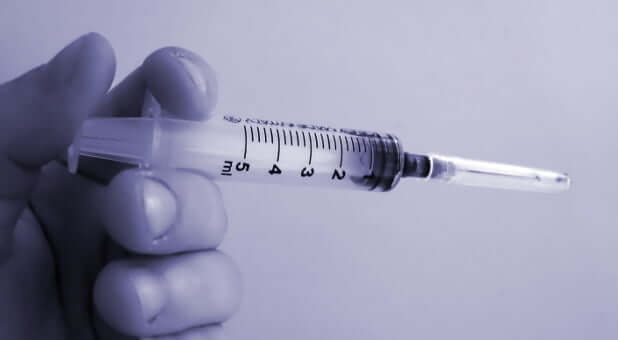Editor’s Note: This article first appeared in 2003.
Question If the smallpox vaccine is made available again in the United States, should I take it?
J.E., Portland, Oregon
Answer: If you were to ask that question of someone involved with the federal government, the answer might be yes because of the looming threat of bioterrorism. If you were to ask a Christian spiritual leader the same question, he or she might say your faith will protect you and the vaccine isn’t necessary.
Each of us will have to make this decision for ourselves. Instead of recommending for or against the vaccination, let me educate you about smallpox and the vaccine. Then, you, with the advice of your personal physician, can make an informed decision.
Smallpox is considered an extremely lethal disease of yesterday and a possibly devastating illness of tomorrow. As recently as the 1950s, it was taking 15 million lives worldwide. It kills 1 in 3 people it infects and leaves its survivors disfigured. Last century, smallpox took the lives of 500 million people.
Fortunately for us, however, that is in the past. The world has not seen an incidence of the disease since 1977, when the last case of natural smallpox was reported in Somalia in eastern Africa. But considering the deadly force of this illness, it is understandable why the vaccine is on everyone’s mind right now.
The vaccine being proposed is effective on natural smallpox if it is given within four days of exposure to the disease. It does not contain the actual smallpox virus; however, 15 people in every 1 million vaccinated are expected to experience serious side effects, and 2 in every 1 million are expected to die from the vaccination. Scores more will suffer heavy side effects.
Because there are no reported cases of smallpox at this time and the side effects of the vaccine are severe and risky, I can understand the position that’s being taken by the Advisory Committee of Immunization Practices, which has recommended to the Centers for Disease Control (CDC) not to distribute the smallpox vaccine to the general public. If there is even one case of smallpox discovered, the CDC will consider it a public-health emergency. If that happens, I expect there to be a rush to vaccinate–though being vaccinated will be voluntary.
Right now, we are in the wait-and-pray mode. Let’s not bow to fear; let’s rejoice because we are more than conquerors (see Rom. 8:37). I admire missionaries who go where there are diseases they aren’t immune to. They go with a conviction that God will protect them–and when He doesn’t, their reward in heaven is greater than the gain of this world.
Question: What can you tell me about the vaccine for cervical cancer? And when will it be available?
S.S., Willow Creek, California
Answer: At the end of 2002, a study came out that indicated a new vaccine developed by the huge pharmaceutical company Merck showed promise of helping women avoid cervical cancer. Calling the drug a “cervical cancer vaccine” is a misnomer, however. The vaccine actually fights HPV, which is the virus known to cause cervical cancer.
Reviewing the study, I do believe that the researchers are on to something, but the test group was too small and the duration of the trial too short to be conclusive. In fact, officials indicate that if everything goes well through the required testing, this vaccine won’t be available for another five years.
Here is the good news: Cervical cancer isn’t very prominent in the United States. The reason is, we have better pollution control, and the majority of our citizens can afford to bathe daily in treated water.
This vaccine will have a bigger impact in underdeveloped countries where good hygiene is a big problem. The question will be whether or not people in underdeveloped countries will be able to afford the vaccine. I truly hope so.
My recommendation is to practice good hygiene and limit your sexual practice to one partner within the institution of marriage. This is the best way to immunize yourself from all sexually transmitted diseases, as well as cervical cancer.
People who do this will, most likely, have little need for a vaccine.











































